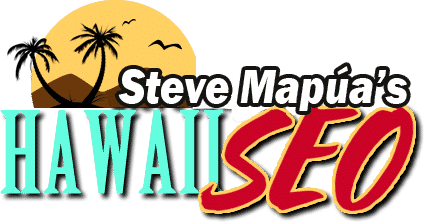Hawaii SEO – Boosting Rankings Using On-Page SEO Techniques (Part 2)
In Boosting Rankings Using On-Page SEO Techniques (Part 1), I started my in-depth discussion on the various on-page factors you can do to optimize your website. For this set, I will focus on how to optimize your page titles and meta descriptions.
Tips in Optimizing Page Titles and Meta Descriptions
When search engines scan the different websites available online, the first thing that gets noticed is the page title. Search engines, like Google, don’t have eyes that see, but they “read” websites through the page title and the meta description.
Search engines will rank your web pages according to how they understand it. Also, aside from on-page SEO factors, there are the off-page SEO factors, the website competitors, and others to consider. If you don’t know this, I will explain how search engines work on another post, but first, let me focus my attention on page titles and meta descriptions.
Page titles
Each page on your website should have its own title that both users and search engine should be able to grasp. The title should concise and descriptive at the same time. Moreover, it should give a clear overview on what a page is about. Remember, a page with “Important Web Pages When Making a Website” as its title is way better than having “Main Page” as the title.
Here are other page title optimization tips:
- Right from the start, help search engines analyze your website better. Help Google understand that these are the keywords you want to rank for. However, this should not be your excuse to stuff keywords on your title. Remember, it still has to make sense for your readers. Keep a balance between pleasing the audience and the search engine. If you are focusing merely on the target keywords, your readers won’t find your pieces interesting.
- Long titles aren’t always the best titles! If you can keep the titles below 60 characters, then you should be fine.
- Remember to include numbers on your title. Adding numbers like 8 Ways to Use Stock Photos on Your Website will make wandering eyes stop.
- Aside from numbers, try to add power words as well. Power words help not just in SEO, but other industries as well. When you add words like “ultimate“, “effortless“, “mind-blowing“, these motivates people to take action. Power words make your content interesting. Thus, people will click it more!
- Next, there’s no need to include your domain name in the title. Like in this post, I didn’t add Steve Mapua to the title. Instead, I utilized 58 characters (not including spaces) on the title. Do the same, and use around 60 characters to create an accurate page title. If you have a recognizable brand, then that’s when you can add it on your title. For more tips on how to create better page titles, please refer to Page Titles and Meta Descriptions Optimization Tips.
Meta Descriptions
On any search engine results page, the searchers will see 2 main things: your title and your meta description. So, don’t just focus on merely the title. Give some thought to your meta description too! This is your chance to inform and convince the searchers to click. Give them a reason to visit your website instead of the other websites found on the SERPs.
Here are ways to optimize your meta descriptions:
- Target keywords should also be added on your meta description. Google will highlight the search terms found on your meta description. So, add relevant keywords into the mix because it will make it more attractive to the search engine and the searchers.
- Say NO to auto-generated descriptions. It is best to formulate your own so that you can captivate and persuade people to click.
If you want to read more optimization tips, see you on Boosting Rankings Using On-Page SEO Techniques (Part 3).

